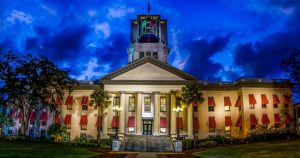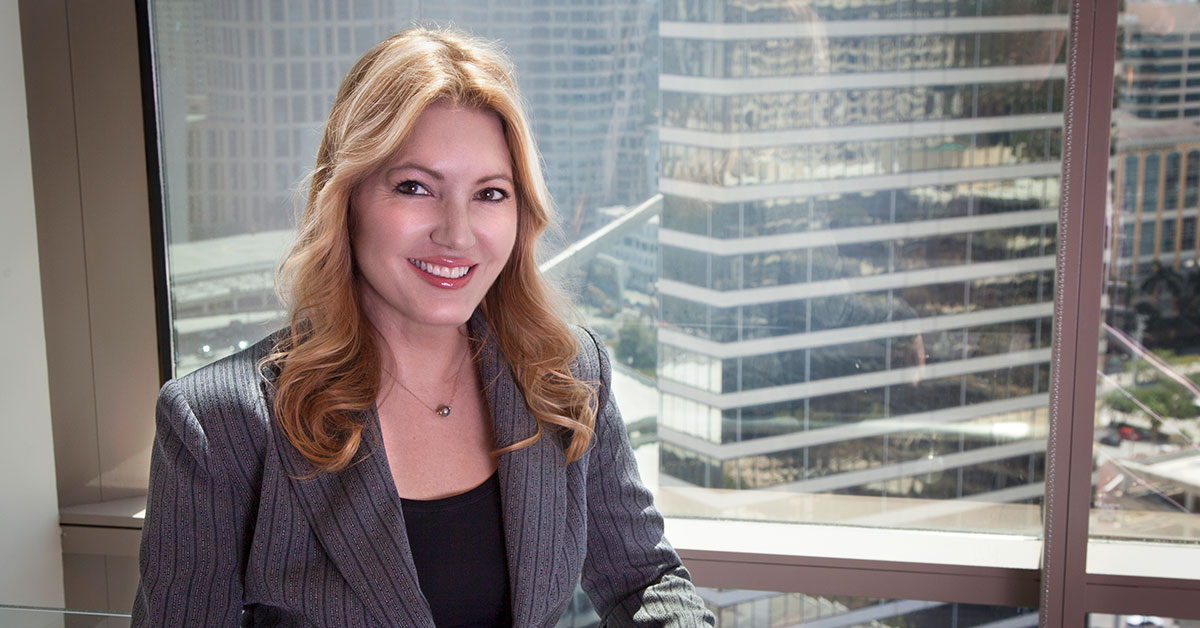Prompted by the Champlain Towers Condominium collapse in Surfside, Florida, the Federal National Mortgage Association (“Fannie Mae”) and the Federal Home Loan Mortgage Corporation (“Freddie Mac”) recently issued new temporary requirements as an attempt to mitigate risk in community association loan underwriting. Many other industries within the community association world, such as insurance, have adjusted costs and guidelines in an effort to mitigate risk due to the unprecedented tragedy.
The new requirements have created significant murmurings, considering that as of 2020 Fannie Mae and Freddie Mac own approximately sixty-two (62%) of conforming loans in the United States. According to Dawn Bauman, CAI’s senior vice president of government and public affairs, “70% of all condo loans in the U.S. are [backed by] Fannie Mae or Freddie Mac. 60% to 70% of all condo complexes are more than 30 years old.” Both Freddie and Fannie do not lend money directly, but are guarantors of third-party loans and purchasers of loans in the secondary mortgage market. Unfortunately, the new requirements are exceedingly difficult to meet as now articulated.
Before discussing the requirements, a brief outline of Fannie Mae’s and Freddie Mac’s importance to the residential mortgage market may be helpful. Chartered by Congress, and now under the conservatorship of the Federal Housing Finance Agency (“FHFA”), Fannie Mae and Freddie Mac are government-sponsored enterprises (“GSE”), quasi-governmental entities with the purpose of enhancing the flow of credit to mortgage lenders, providing liquidity, stability and affordability to the U.S. housing market.
The primary difference between Fannie Mae and Freddie Mac, is that Fannie Mae buys mortgages from larger commercial banks, while Freddie Mac buys from smaller banks. When a potential unit owner either purchases a unit within a community association, or decides to refinance, a lender will originate and fund the loan, but typically with the intent of selling the loan to either Fannie Mae or Freddie Mac and therefore must meet their underwriting requirements in order for the loan to be deemed eligible. Many homeowners are unaware of these types of transactions on the secondary mortgage market since the bank which originated the loan remains what is deemed the “loan servicer”.
Community association property managers and attorneys have come to know the lender questionnaires that associations are asked to complete so a lender has sufficient documentation to sell the loan to Fannie Mae or Freddie Mac. There are, of course, other guarantors of loans, such as the Federal Housing Administration (“FHA”), which requires a project certification every three years, in order to qualify.
Opposed to the FHA practice of maintaining an Internet accessible list of eligible projects, the new Fannie Mae and Freddie Mac requirements create a private database, which is only available to lenders, of community associations that are deemed ineligible. Among other things, disqualification from Fannie Mae and Freddie Mac can be due to community associations with significant maintenance or unsafe conditions, special assessments, insufficient reserve funding, or no reserve study.
Many may wonder why this a big deal, especially if they believe their association is maintained properly. While that may be the case, the new guidelines now require lenders to obtain written answers to questions concerning building safety, soundness, structural integrity, and habitability, which were never part of previous lender questionnaires. Most of these questions cannot be answered by the association since the board and its manager are simply not qualified to give such an opinion, meaning they lack the requisite legal and engineering expertise.
While many states have legislation pending to require scheduled structural inspections, many associations have not undertaken structural reviews of its properties, particularly on a property-wide basis. A typical reserve study does not undertake structural review or analysis. Even if it has, the questionnaire further asks the association to summarize its findings and make representations about the structure of the building, which can usually only be answered by a professional engineer or architect.
The new lender questionnaire, as contained in Fannie Mae Form 1076 or Freddie Mac Form 476, requires, among other things, that associations make representations concerning structural inspections and deficiencies, anticipated municipal building violations, funding plan for “deferred maintenance” items, current assessments, and future assessments. Indeed, the definition of deferred maintenance, as it is known to Fannie Mae and Freddie Mac, departs significantly from what the industry has come to know as that term. For example, Fannie Mae and Freddie Mac generally defines deferred maintenance as the, “postponement of normal maintenance, which cannot reasonably be resolved by normal operations or routine maintenance, which may result in advanced physical deterioration, lack of full operational efficiency, increased operating costs, and decline in property value.”
On the other hand, in the community association industry, the presumption is that “deferred maintenance” refers only to non-capital maintenance that occurs less frequently than annually and is not funded for through the capital reserves. And, such funding of deferred maintenance projects can come from a specially partitioned fund. Fannie Mae and Freddie Mac do not consider routine maintenance, non-capital improvement projects, or repairs isolated to a few units significant deferred maintenance. Generally speaking, the vagueness and misunderstanding of the questionnaire’s definitions could lead to a host of issues.
Asking an unqualified board or manager to make representations about the structural integrity of the property, combined with further misunderstandings between the community association and lending industry may incur unnecessary and inadvertent legal liability, regardless of the condition of the building. A myriad of potential legal issues could arise due to an unqualified or inaccurate representation concerning the structural integrity of the building. An inaccurate or misunderstood statement from the questionnaire could be used against the community association in a variety of ways in differing types of legal actions, such as a personal injury matters, negligence suits that could be brought against the particular association, and even suits between buyers and sellers of units.
Likewise, asking a board or manager to make representations concerning anticipated building violations or assessments requires the proverbial crystal ball. Board members and property managers can likely recall times when its’ board spent years speculating about a particular project, whether they thought they may receive a violation, and engaging in grueling debate as to the best way to fund it, only to have it not move forward due to lack of approval or otherwise. The issue therefore arises as to when something “anticipated” should be disclosed to a lender. Given the legal structure and requirements of how community association boards operate, to speak in terms of anticipated matters in this context is nonsensical. A board has either approved, or not approved, a project or assessment. A municipality has either issued, or it has not issued, a violation.
The end-goals of what Fannie Mae and Freddie Mac are trying to accomplish is welcomed. The community association industry, including CAI, strives to make our community associations a safer and more comfortable place to live. Volunteer boards, managers, and engineers work tirelessly to improve their buildings and community with the noblest of fiduciary principles in hand. However, it is questionable whether the new requirements align with industry best practices and customs. CAI national has made the following statement: “CAI supports the intent of the new requirements from Fannie Mae and Freddie Mac and understands the need to assess and mitigate risks associated with their respective condominium unit and cooperative share mortgage portfolios but is recommending a delay in implementation. This will allow associations, their managing agents, and service providers to produce documentation materials more efficiently and account for state and local government regulations for project safety and financial solvency standards.”
Until these challenges are resolved, many community associations are caught in a quagmire of how to move forward with the new requirements. Refusing to answer the questionnaire may result in the denial of future loans for a community, but on the other hand, answering the questionnaire may expose the association to considerable liability. There is not a one-size fits all approach and all community associations are unique in this regard. Careful consultation with an association’s legal counsel and engineer is crucial to figure out the best manner in which to move forward with these considerations.
Further information can be found in “Determining Condo or Coop Eligibility for Mortgages Backed by Fannie Mae and Freddie Mac, a Guide for Navigating the New Temporary Requirements for Condominiums and Housing Cooperatives,” February 17, 2022, Community Associations Institute.
Reprinted from the May 2022 issue of the CAI-NJ’s Community Trends®.
 When a community has an entrance gate, it is almost inevitable that the association will at some point deal with the issue of whether it is responsible for damage to a vehicle which occurred when someone was entering or exiting the gate. The primary question to resolve in assessing liability in such a circumstance is determining the cause of the damage. The answer, however, may not always be clear-cut, and the association needs to make sure that it is prepared for such an incident.
When a community has an entrance gate, it is almost inevitable that the association will at some point deal with the issue of whether it is responsible for damage to a vehicle which occurred when someone was entering or exiting the gate. The primary question to resolve in assessing liability in such a circumstance is determining the cause of the damage. The answer, however, may not always be clear-cut, and the association needs to make sure that it is prepared for such an incident. This year’s large community association omnibus bill will likely become law. This bill, which bears an effective date of July 1, 2021, contains changes which will impact condominiums, cooperatives and HOAs. At more than 100 pages, we will discuss only some of those changes in today’s CALL Alert. This bill, along with all the others CALL has been tracking throughout the 2021 Legislative Session, will be summarized in our year-end Legislative Guidebook.
This year’s large community association omnibus bill will likely become law. This bill, which bears an effective date of July 1, 2021, contains changes which will impact condominiums, cooperatives and HOAs. At more than 100 pages, we will discuss only some of those changes in today’s CALL Alert. This bill, along with all the others CALL has been tracking throughout the 2021 Legislative Session, will be summarized in our year-end Legislative Guidebook. Yesterday Governor DeSantis signed
Yesterday Governor DeSantis signed 